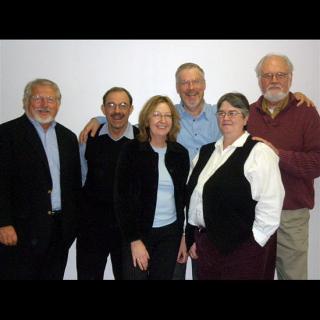CBCO & the UUA

The UUA IOI/CBCO Team: Fred Seidl, Jim Eller, Susan Leslie, Craig Roshaven, Gini Courter, John Blevins.
The Office for Congregational Advocacy and Witness provides resources and support for congregations interested in or engaged in Congregation-Based Community Organizing.
Contact Susan Leslie, Congregational Advocacy and Witness Director, for more information: socialjustice@uua.org.
Dr. Fred Seidl, a Unitarian Universalist (UU) volunteer and former college Dean of Social Work is working with the Office for Congregational Advocacy and Witness to promote and enhance congregation based community organizing. Fred conducted a survey of UU congregations to learn more about UU involvement in this movement. He is available for consultation and connecting UUs who have an interest in or are currently active in Congregation-Based Community Organizing (CBCO). You can contact him at cbco@uua.org.
A Ministers Advisory Council made up of UU ministers from each of the Districts of the Association is available for consultation. These ministers are listed in the Unitarian Universalist Association publication Congregation Based Community Organizing: A Social Justice Approach Revitalizing Congregational Life.
The Unitarian Universalist Association (UUA) is a member of the Inter-Religious Organizing Initiative, known informally as the IOI Table. IOI is a collective effort of committed denominations and religious bodies, congregation-based organizing networks, and funders to strengthen congregation-based community organizing within denominations and to increase successful advocacy at the national level. Susan Leslie and a Rev. Jim Eller, of the UU Ministers Council on CBCO, represent the UUA.
Subscribe to CBCO News: From the UUA Office for Congregational Advocacy & Witness and the UU Ministers Council on CBCO. Published January, April & September. You’ll receive news about UU engagement in CBCO and resources for strengthening your work and this interfaith movement.
The email list CBCO-L provides a forum for members and ministers of UU congregations participating in or interested in congregation-based community organizing. The information exchanged also helps staff learn how to best support these efforts through identifying needs and resources, providing information and workshops, and creating networking opportunities.